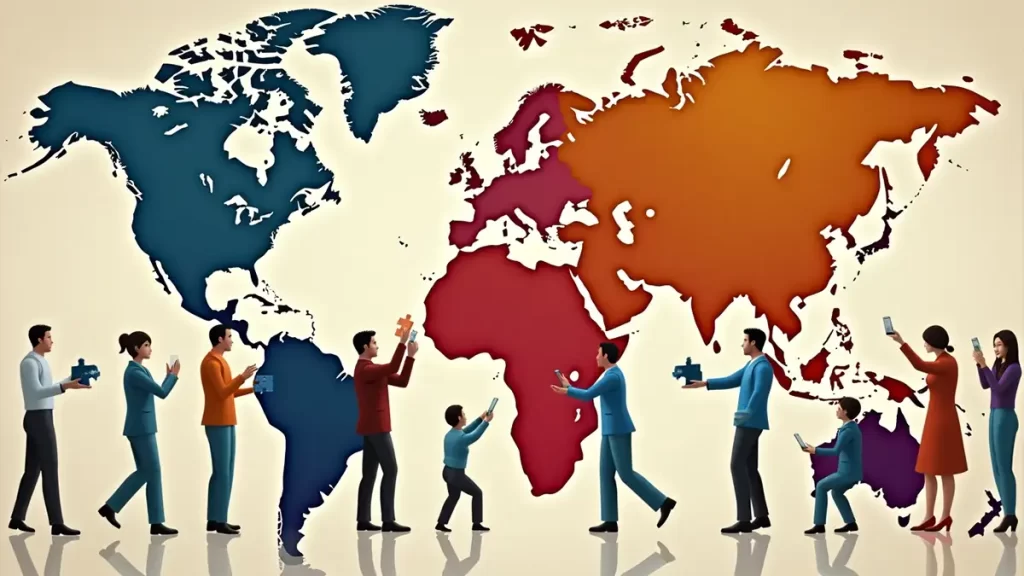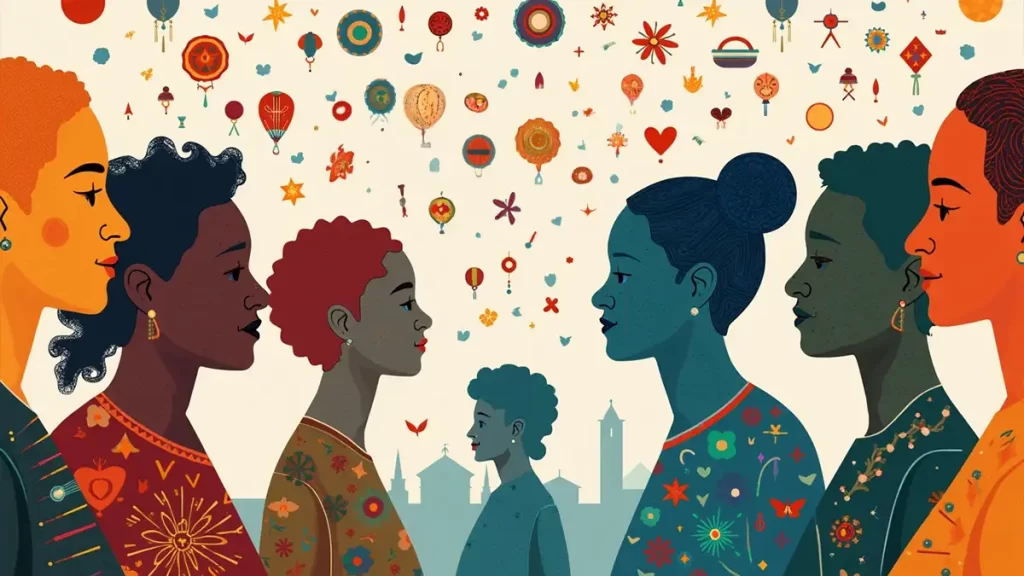Mastering Cultural Competence: Navigating Cross-Cultural Communication in 2024
In our ever-connected world, knowing how to talk to people from different cultures isn’t just nice—it’s necessary.
Cultural competence in communication means understanding and respecting the ways others see the world.
It’s not about changing who you are but about finding common ground and building bridges.
Being good at cross-cultural communication helps us avoid misunderstandings and make stronger connections. Whether at work, in your community, or at home, cultural competence can make a big difference.
In this article, we’ll explore what cultural competence is all about, how different cultures communicate, and practical ways to improve cultural sensitivity in relationships.
Understanding Cultural Competence
Cultural competence in communication starts with understanding. People from different cultures might think and communicate in ways that are different from what you’re used to.
“It’s not just about speaking the same language, but about understanding the cultural context behind the words,” says Dr. Jane Collins, a specialist in intercultural communication.
At its core, cultural competence involves three key parts: awareness, knowledge, and skills. Awareness means noticing your own cultural biases and how they affect your interactions. Knowledge involves learning about other cultures—their values, customs, and ways of talking. Skills are about using this awareness and knowledge to communicate effectively and respectfully.

“Developing cultural competence doesn’t mean you have to agree with everything another culture does. It’s about showing respect and understanding,” adds Dr. Collins.
This approach can help you build more meaningful connections, whether at home, in the community, or at work.
The Impact of Cultural Differences on Communication Styles
Cultural differences can significantly influence how people communicate. What’s considered polite in one culture might seem rude in another. That’s where cultural competence in communication comes in.
For example, some cultures value direct communication—where you say exactly what you mean. Others prefer a more indirect approach, where the message is hinted at rather than stated outright.
“In some cultures, being direct is seen as efficient and honest, while in others, it might come across as blunt or even rude,” explains Dr. Peter Johnson, a cultural psychologist.
Another big difference is how cultures view time. In some places, being on time is a must. In others, time is more flexible, and being a little late isn’t a big deal.
“Understanding these subtle differences can prevent misunderstandings and help you navigate cross-cultural interactions more smoothly,” says Dr. Johnson.
Developing Cultural Competence
Building cultural competence in communication takes time and effort. Here are some simple steps to help you develop cultural competence:
- Self-Reflection: Start by looking at your own cultural biases and how they affect your interactions. Think about how your upbringing and experiences shape the way you communicate.
- Education: Learn about other cultures. You don’t need to be an expert, but knowing the basics—like what’s considered respectful or rude—can help you avoid misunderstandings.
“A little knowledge goes a long way in showing respect for another’s culture,” emphasizes Dr. Jane Collins.
- Exposure: Spend time with people from different cultures. The more you interact with diverse groups, the more comfortable you’ll become.
- Practice Empathy: Try to see things from someone else’s point of view. Imagine how they might interpret a situation differently, and use that understanding to guide your communication.
- Stay Open-Minded: Remember, cultural competence is about respect and understanding. You don’t have to agree with everything, but keeping an open mind can help you navigate cultural differences with grace.
The Role of Cultural Sensitivity in Professional Relationships
At work, cultural sensitivity in relationships is key to teamwork and collaboration. When people from different cultures work together, misunderstandings can happen.
“Cultural sensitivity fosters respect and trust, which are essential for effective collaboration,” says Sarah Kent, a workplace diversity consultant.
Understanding and respecting cultural differences allow teams to bring different perspectives to the table. This can lead to more creative solutions and better decision-making.
Showing cultural sensitivity also helps build trust among team members. When people feel respected and understood, they’re more likely to do their best work, which improves team dynamics and productivity.
“A team that respects cultural differences can thrive, with each member contributing unique perspectives,” adds Kent.
Challenges and Solutions in Cross-Cultural Communication
Even with the best intentions, cultural competence in communication can be tricky. Common challenges include language barriers, different communication styles, and cultural misunderstandings. But these can be overcome with the right strategies.

- Language Barriers: Even when you speak the same language, cultural differences can cause confusion. Use clear, simple language, and avoid idioms or phrases that might not make sense in another culture.
- Differing Communication Styles: Direct and indirect communication styles can clash. Be aware of these differences and adapt your style when needed.
- Cultural Misunderstandings: Misunderstandings are bound to happen, but they can be minimized by approaching each interaction with an open mind and a willingness to learn.
“When in doubt, ask questions or seek clarification. It shows you’re interested in understanding and respecting their culture,” advises Dr. Collins.
By addressing these challenges head-on, you can improve your cultural competence and build stronger relationships.
Conclusion
In our connected world, cultural competence in communication is essential for building strong, respectful relationships.
Whether in personal or professional settings, understanding and navigating cultural differences with sensitivity helps you communicate more effectively and avoid misunderstandings.
“Cultural competence isn’t just a skill—it’s a bridge to better communication and understanding in today’s globalized world,” concludes Sarah Kent.
So, take the time to develop your cultural competence. Educate yourself, practice empathy, and be open to learning from others. By doing this, you’ll not only improve your communication skills but also help create a more respectful and connected world.
-

 Best Picks1 year ago
Best Picks1 year agoDriving Insurance: Get the Best Car Coverage Without Overpaying
-

 Best Rewards7 months ago
Best Rewards7 months agoBest rewards credit cards in 2025 for everyday use
-

 Personal Growth & Mindset1 year ago
Personal Growth & Mindset1 year agoTed Lasso Effect: 5 Goal-Setting Secrets You Must Know
-

 Personal Growth & Mindset1 year ago
Personal Growth & Mindset1 year agoMachado de Assis: This Viral TikTok Explains Why You Need to Read ‘The Posthumous Memoirs of Brás Cubas’ Now
-

 Career & Success1 year ago
Career & Success1 year agoChallenges of Not Having Goals: 5 tips to help you get started
-

 AI & Future Trends1 year ago
AI & Future Trends1 year agoAI in Time Management 2024: A New Era of Productivity for Business Leaders








